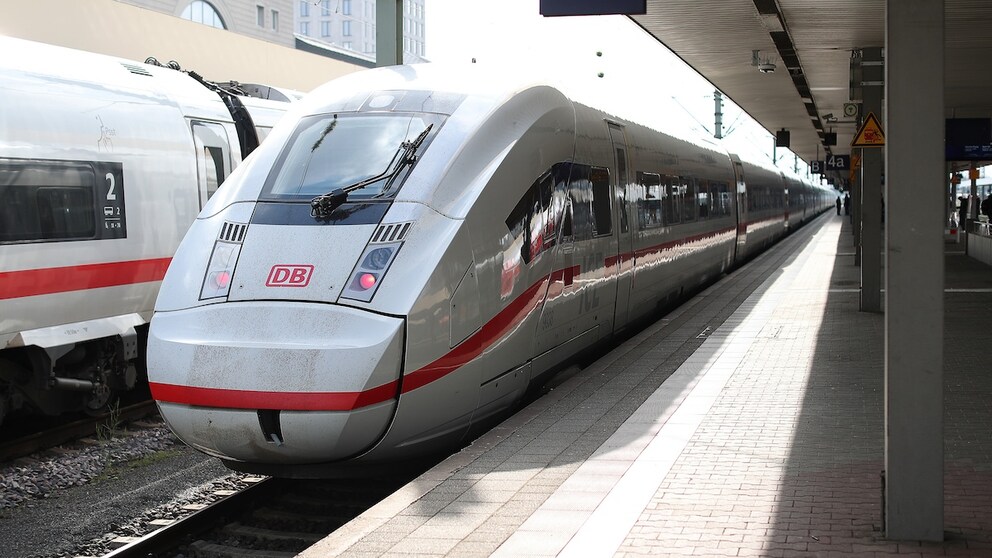November 15, 2024, 6:36 am | Read time: 4 minutes
Deutsche Bahn (DB) offers its tickets in different categories. In line with its name, the higher-priced flex ticket offers users the maximum amount of flexibility available. From mid-December, however, various unfavorable changes for rail passengers will come into force along with the timetable change.
Traditionally, Deutsche Bahn (DB) implements changes to its timetables during the winter season. This so-called timetable change brings several enhancements for passengers, such as new routes and streamlined operations on existing lines. More on this later. However, as is customary, the transport company is also rolling out fare adjustments, which this time include price hikes and modifications to rebooking and cancellation policies. These changes specifically affect flex tickets.
The previous conditions of Deutsche Bahn’s flex tickets
Their name comes from the idea that travelers should enjoy exceptional flexibility when using them. Unlike the two cheaper ticket categories (Sparpreis and Super Sparpreis), holders of a flex ticket can board any available train on the route they have booked on the day of travel. They can also change their travel plans completely, i.e., rebook or cancel their ticket before the first day of validity – free of charge. Both are still possible on the day of validity itself. However, Deutsche Bahn will retain around 19 euros of the flex ticket price.
What will change from mid-December
The conditions for flex tickets will change on December 15. From this date, Deutsche Bahn will only allow free rebooking or cancellation up to eight days before the day of validity, i.e., before the planned departure. This can be read in a publication on the timetable change. From the seventh day before the first day of validity, the described travel plan changes are only possible for a fee of 10 euros. It will be even more expensive on the day of validity itself. “We charge a fee of 30 euros per ticket for exchanges or refunds,” it says.
TRAVELBOOK asked DB directly. A spokeswoman for the company explained the fare adjustments for last-minute changes to travel plans or cancellations with the resulting high processing costs, which in any case “have become significantly more expensive in view of the general cost trend”.
Speaking of becoming more expensive. As if the loss of flexibility wasn’t enough, flexible tickets will soon cost more from the outset. Deutsche Bahn announced that in a press release last October. “The prices for flex fares and season tickets will rise by an average of 5.9 percent from December 15,” it says. The BahnCard 100, among others, is also to be increased by an average of 6.6 percent.
Is the Deutsche Bahn flex ticket still worth it?
This raises the increasingly pressing question: is booking a flex ticket still worth it? Until now, they have had the advantage for users of being able to react relatively spontaneously to their own change requirements. To keep cancellation or rebooking fees as low as possible, travelers might consider making their bookings closer to the departure date. However, this strategy offers no advantage for saver fare (Sparpreis) and super saver fare (Super Sparpreis) tickets. Prices in these categories typically rise as the departure date approaches. However, the price of flex tickets can also vary from time to time – especially on routes and at times of high demand, or when additional services are included. In summary, if price is a relevant factor, short-term bookings are not always a recommended solution.

Are the trips worthwhile? ADAC tests Europe’s night train services – these are the results

Fire off Athens Is the fear of forest fires a reason to cancel travel plans?

It's not just the timing that matters 5 Simple Tips to Save Money When Booking Your Vacation
Timetable changes from December 15
Let’s take a closer look at the key aspects of the “timetable” change. According to the DB website, this includes a new, approximately eight-hour direct connection between Berlin and Paris. In addition, there will be a transfer-free ICE connection between Amsterdam and Munich from December 15. Furthermore, an ICE connection will be established for travelers to Poland. This one will run three times a day between Berlin and Krakow, as well as twice a day to Przemysl. The much-used Sprinter connection between Berlin and Frankfurt am Main is to run 11 times a day in both directions in the future, “including an additional 3 non-stop services and 2 transfer-free services to/from Saarbrücken”. It’s interesting to note that back in the early 2000s, the “Sprinter”—which now takes about four hours—completed the journey in just three and a half hours, and that too without any stops in between.

